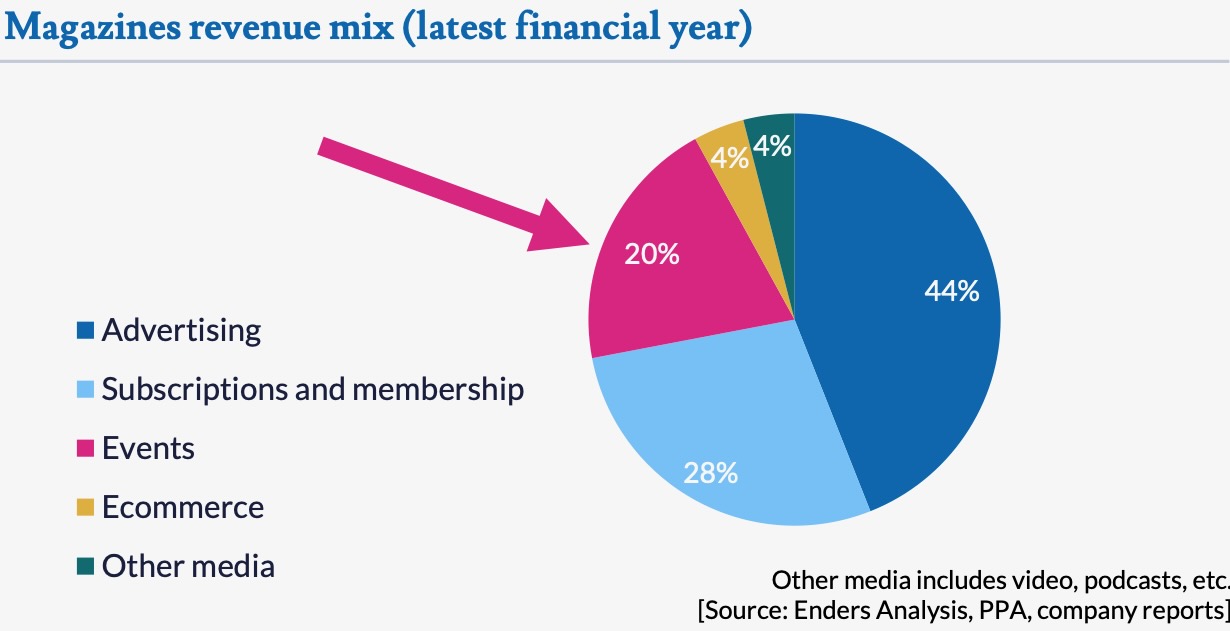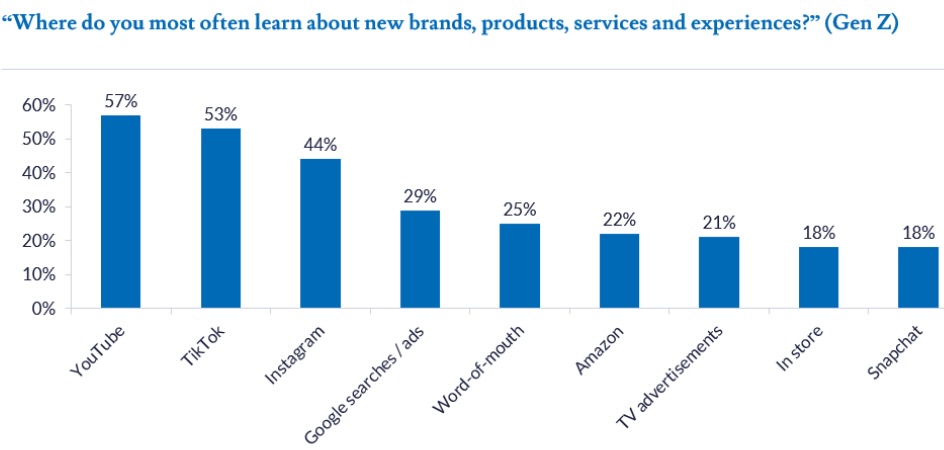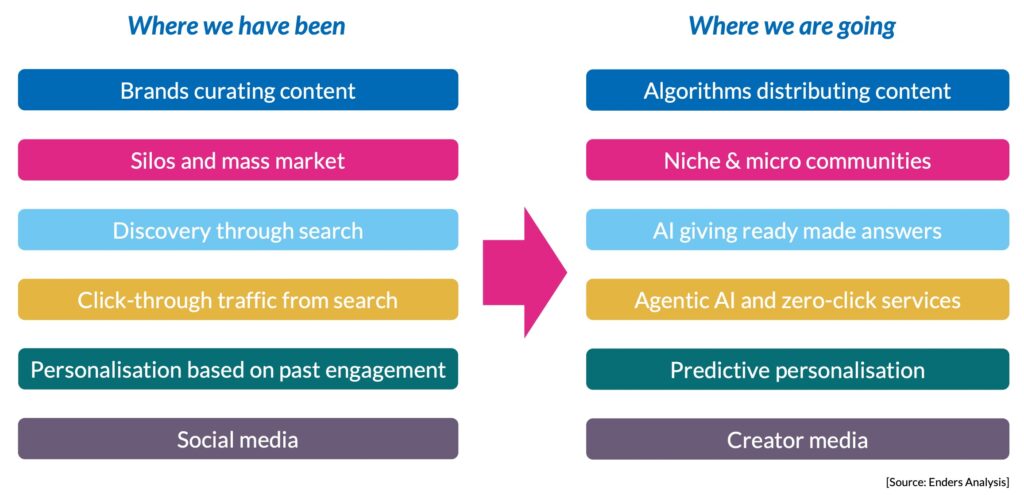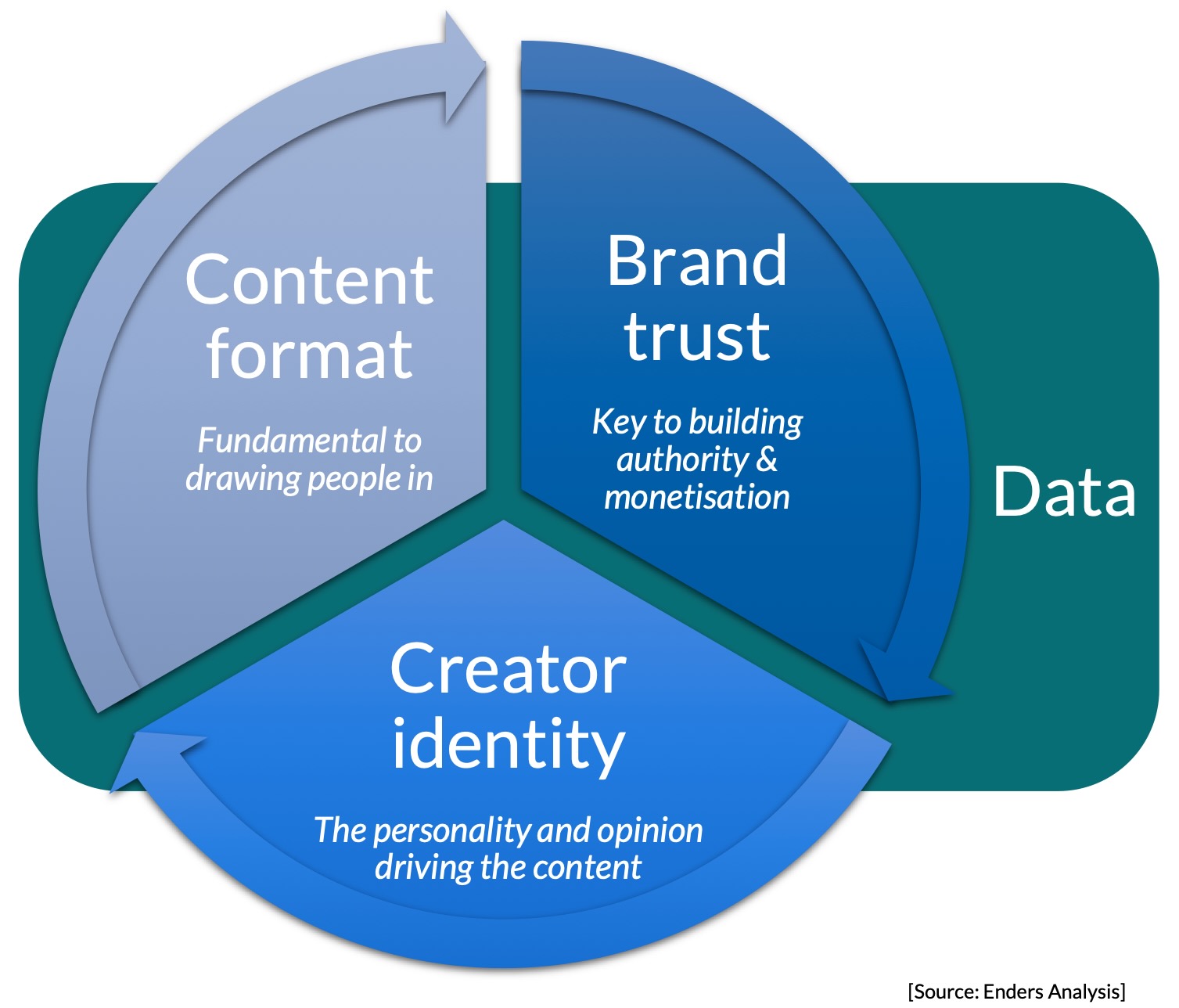The highlight of the 112-year-old UK Professional Publishers Association’s annual gathering in London this week was a research presentation by UK-based media consultant Enders Analysis. The 19-year Enders CEO Douglas McCabe summarised the climate for an industry once defined by print magazines (B2B and B2C) and now increasingly by digital media and live events. But the divergence between the two traditional wings of the PPA (whose own association revenue halved during 2018-23) is marked by continuing B2C dependence on advertising and the growing non-advertising diversification for B2B companies, most of which have sharply increased their revenue from readers, users and event visitors.
McCabe pointed out that 44% of B2C magazine revenues in the UK still comes from advertising, with 28% from subscriptions, copy sales and membership, but 20% now comes from events:

In a carefully weighted presentation, that was bitter-sweet for many in his audience, McCabe summarised the outlook for the once exclusively magazine-centric PPA membership:
- The curation that drives legacy brands has been replaced by algorithms, increasing competition for user attention from media brands. The increase in quantity has boosted the importance of specialisation, personalisation, and community as means of standing out from the crowd
- Utility is key to users for seeking information as they are increasingly accustomed to high-value-add digital tools including: a) Community platforms that bring together interest areas under one online roof (and offer the convenience and personalisation of algorithmic platforms while allowing users the control to curate their own online environments) are gaining traction. b) Alignment between content and format is key to convincing users of the value-add of a brand, and also the value of paying for it: what works for one brand may not work for another, and embracing more creative formats opens up more opportunities to consolidate user support
- The website format is gradually becoming redundant because it is less able to cater for consumer expectations alongside new digital-native formats: “The website itself is no longer the primary destination for consumers as it struggles to meet expectations while AI erodes publisher monetisation,” McCabe said. The rise of algorithms and looming transition to agentic AI meant search traffic was no longer a given, threatening existing monetisation strategies and increasing the urgency of innovation.

The role of product had never been more important. Product evolution was harder for heritage media brands grappling with antiquated tech stacks, but it also represented a clearer value gain and opportunity to stand out. Some media would be able to make small adjustments to their product and format to maintain relevance, but others would need to reimagine their whole product: data and audience understanding was the key to future strategies.
- Silos are a thing of the past: media brands cannot rely on a single aspect of their content or channel to reach audiences and maintain traction. Instead, the strength of intersection between content formats, creator identities, and brand trust will be crucial – all underpinned by data. Media brands cannot produce the same material across channels and expect it to work
- Brand trust has wider direct and indirect impacts, not only boosting more resilient engagement, but growing monetisation options. Its most important role will be future-proofing as the range of formats available and future changes to distribution models arise
- Print and offline will retain a role, but not through direct competition with online formats. Instead, analogue formats should lean into their strengths (areas such as events) that are not replaceable or where consumers are better served amidst rising digital fatigue. Events are a key area of focus, especially in B2B.
The Enders research underlined the opportunities for niche and curated content and specialisation: “Users value community and belonging. There is no space for generalists on the internet.”

McCabe noted that the whole media playbook was changing in specific ways that favoured specialisation and personalisation and (if you’re not careful) smaller, targeted operators:

Three inter-dependant factors defined success: content format, brand trust, creator identity and understanding of the audience through data. High-quality content would achieve cut-through, a reputable brand would boost the profiles of individual contributors, protect the audience and allow for experimentation; known individuals within a brand would – over time – become brands themselves. Data and audience understanding was critical.

The Enders CEO’s parting shot was: “In the end, usefulness is what people most value.” Publishers must capitalise on their ability to provide utility and a sense of community. Douglas McCabe had finally found a unifying message for the disparate UK membership of what was formerly the Periodical Publishers Association. Utility and Community. Of course.



